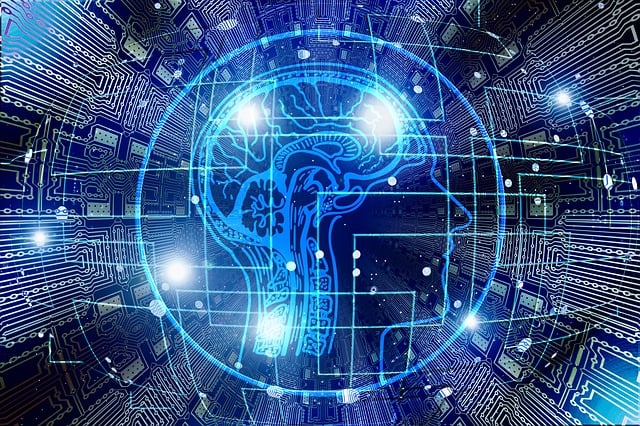Table of Contents
This article explores the evolution, applications, and future prospects of Artificial Intelligence (AI), highlighting its profound societal impact and its transformative role in our daily lives.
• The Evolution of Artificial Intelligence
Artificial Intelligence began in the mid-20th century with Alan Turing’s question, “Can machines think?” This led to the development of first AI programs in the 1950s and 1960s. The 1980s saw expert systems mimicking human decision-making, but limitations arose. Big data and machine learning in the 2000s revolutionized AI, making it more adaptive and autonomous.
• Everyday Applications of AI
AI has become a ubiquitous tool in our daily lives, enhancing efficiency, convenience, and personalization. Virtual assistants like Siri, Alexa, and Google Assistant manage our schedules, while online streaming services like Netflix and Spotify analyze our preferences. AI-driven algorithms in finance, shopping, and healthcare also improve efficiency and personalization, making daily tasks more interconnected and seamless.
• AI in Healthcare
The healthcare sector has experienced significant advancements thanks to AI. Integrating AI technologies has revolutionized diagnostics, personalized medicine, and operational efficiency. AI algorithms can analyze complex medical data faster and more accurately than traditional methods, aiding in early disease detection and improving patient outcomes. Machine learning models, for instance, can predict the likelihood of diseases such as cancer by identifying patterns in medical imaging that might be indiscernible to the human eye. Personalized medicine, another groundbreaking application, utilizes AI to tailor treatments based on individual genetic profiles, ensuring more effective and targeted therapies. Additionally, AI-driven systems optimize hospital operations by predicting patient admissions, managing resources, and improving workflow efficiency. AI-powered predictive analytics can also help in identifying potential outbreaks and managing public health crises. While challenges such as data privacy and ethical considerations remain, the potential for AI to transform healthcare by enhancing precision, reducing costs, and improving accessibility is immense, promising a future where medical care is more proactive and patient-centered.
• Impacts on Employment and the Economy
The rise of AI heralds significant changes for employment and the economy at large. AI automation’s ability to perform repetitive tasks more efficiently than humans poses a threat to certain job sectors, especially in manufacturing, data entry, and customer service. For example, AI-powered robots are increasingly used in manufacturing to perform tasks that were traditionally done by human workers. However, while AI may displace some jobs, it is also expected to create new opportunities in tech development, AI maintenance, and other emerging sectors. The demand for AI specialists, data scientists, and robotics engineers is on the rise, reflecting a shift towards higher-skill occupations. Economically, AI has the potential to boost productivity and drive innovation, leading to new products and services that can enhance economic growth. Nevertheless, these changes necessitate a rethinking of education and workforce development to equip individuals with the skills needed in an AI-driven economy. Policies and initiatives to support retraining and upskilling will be vital to ensuring that the benefits of AI are broadly shared and that no segment of the workforce is left behind.
• Ethical and Privacy Considerations
As AI continues to grow in capability and influence, the ethical and privacy concerns associated with its deployment become increasingly critical. One of the primary ethical issues is bias in AI algorithms. Since AI systems are trained on data that may contain biases, they can inadvertently perpetuate and amplify these biases, leading to unfair outcomes in areas such as hiring, law enforcement, and lending. Additionally, the use of AI in surveillance raises significant privacy concerns. AI-powered surveillance systems can track and monitor individuals on an unprecedented scale, potentially infringing on personal freedoms and privacy rights. The collection and use of vast amounts of personal data by AI systems also pose risks related to data breaches and misuse. Ensuring the ethical use of AI requires robust regulations and frameworks that promote transparency, accountability, and fairness in AI applications. There is also a pressing need for ongoing dialogue among technologists, policymakers, and the public to address these concerns and establish trustworthy AI systems that respect individual rights and societal values.
• Future Prospects of AI
The future of AI holds immense promise and potential across various domains. Emerging technologies such as quantum computing and advanced neural networks are expected to propel AI capabilities to new heights, enabling even more sophisticated and efficient problem-solving and decision-making processes. In the realm of healthcare, future AI advancements could lead to breakthroughs in drug discovery and the development of more effective therapies for complex diseases. In education, AI-powered personalized learning systems could transform how knowledge is imparted, making education more accessible and tailored to individual needs. Autonomous systems, including self-driving cars and drones, are poised to revolutionize transportation and logistics, enhancing safety and efficiency. Furthermore, AI is likely to play a crucial role in addressing global challenges such as climate change, by optimizing resource utilization and energy management. However, realizing these future prospects will require addressing current limitations and ethical concerns, fostering interdisciplinary collaboration, and ensuring that the development of AI is aligned with human values and societal goals.
• Conclusion
In conclusion, the rise of Artificial Intelligence is reshaping multiple facets of our world, from everyday conveniences to groundbreaking advancements in healthcare and beyond. Its journey, marked by significant technological leaps, has brought AI from mere theoretical constructs to vital, real-world applications. While AI’s potential to augment human capacity and drive economic growth is immense, it also brings challenges, particularly regarding employment displacement, ethical considerations, and privacy issues. As we stand on the cusp of this AI-driven future, it is imperative to foster a balanced approach that leverages AI’s benefits while addressing its drawbacks. Education, robust ethical frameworks, and policies guiding AI development and deployment will be crucial in ensuring that AI serves as a tool for enhancing human well-being and societal advancement. Through mindful stewardship, AI can indeed become a cornerstone of a more innovative, efficient, and equitable future.



